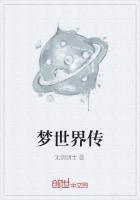"And was it good?"
"Splendid stuff. Say it's 'delicious and invigorating.' They'll be sure to quote that."
Peter wrote on: 'Personally I have found it delicious and--' Peter left off writing. "I really think, Clodd, I ought to taste it.
You see, I am personally recommending it."
"Finish that par. Let me have it to take round to the printers.
Then put the bottle in your pocket. Take it home and make a night of it."
Clodd appeared to be in a mighty hurry. Now, this made Peter only the more suspicious. The bottle was close to his hand. Clodd tried to intercept him, but was not quick enough.
"You're not used to temperance drinks," urged Clodd. "Your palate is not accustomed to them."
"I can tell whether it's 'delicious' or not, surely?" pleaded Peter, who had pulled out the cork.
"It's a quarter-page advertisement for thirteen weeks. Put it down and don't be a fool!" urged Clodd.
"I'm going to put it down," laughed Peter, who was fond of his joke. Peter poured out half a tumblerful, and drank--some of it.
"Like it?" demanded Clodd, with a savage grin.
"You are sure--you are sure it was the right bottle?" gasped Peter.
"Bottle's all right," Clodd assured him. "Try some more. Judge it fairly."
Peter ventured on another sip. "You don't think they would be satisfied if I recommended it as a medicine?" insinuated Peter--"something to have about the house in case of accidental poisoning?"
"Better go round and suggest the idea to them yourself. I've done with it." Clodd took up his hat.
"I'm sorry--I'm very sorry," sighed Peter. "But I couldn't conscientiously--"
Clodd put down his hat again with a bang. "Oh! confound that conscience of yours! Don't it ever think of your creditors?
What's the use of my working out my lungs for you, when all you do is to hamper me at every step?"
"Wouldn't it be better policy," urged Peter, "to go for the better class of advertiser, who doesn't ask you for this sort of thing?"
"Go for him!" snorted Clodd. "Do you think I don't go for him?
They are just sheep. Get one, you get the lot. Until you've got the one, the others won't listen to you."
"That's true," mused Peter. "I spoke to Wilkinson, of Kingsley's, myself. He advised me to try and get Landor's. He thought that if I could get an advertisement out of Landor, he might persuade his people to give us theirs."
"And if you had gone to Landor, he would have promised you theirs provided you got Kingsley's."
"They will come," thought hopeful Peter. "We are going up steadily. They will come with a rush."
"They had better come soon," thought Clodd. "The only things coming with a rush just now are bills."
"Those articles of young McTear's attracted a good deal of attention," expounded Peter. "He has promised to write me another series."
"Jowett is the one to get hold of," mused Clodd. "Jowett, all the others follow like a flock of geese waddling after the old gander.
If only we could get hold of Jowett, the rest would be easy."
Jowett was the proprietor of the famous Marble Soap. Jowett spent on advertising every year a quarter of a million, it was said.
Jowett was the stay and prop of periodical literature. New papers that secured the Marble Soap advertisement lived and prospered; the new paper to which it was denied languished and died. Jowett, and how to get hold of him; Jowett, and how to get round him, formed the chief topic of discussion at the council-board of most new papers, Good Humour amongst the number.
"I have heard," said Miss Ramsbotham, who wrote the Letter to Clorinda that filled each week the last two pages of Good Humour, and that told Clorinda, who lived secluded in the country, the daily history of the highest class society, among whom Miss Ramsbotham appeared to live and have her being; who they were, and what they wore, the wise and otherwise things they did--"I have heard," said Miss Ramsbotham one morning, Jowett being as usual the subject under debate, "that the old man is susceptible to female influence."
"What I have always thought," said Clodd. "A lady advertising-agent might do well. At all events, they couldn't kick her out."
"They might in the end," thought Peter. "Female door-porters would become a profession for muscular ladies if ever the idea took root."
"The first one would get a good start, anyhow," thought Clodd.
The sub-editor had pricked up her ears. Once upon a time, long ago, the sub-editor had succeeded, when all other London journalists had failed, in securing an interview with a certain great statesman. The sub-editor had never forgotten this--nor allowed anyone else to forget it, "I believe I could get it for you," said the sub-editor.
The editor and the business-manager both spoke together. They spoke with decision and with emphasis.
"Why not?" said the sub-editor. "When nobody else could get at him, it was I who interviewed Prince--"
"We've heard all about that," interrupted the business-manager.
"If I had been your father at the time, you would never have done it."
"How could I have stopped her?" retorted Peter Hope. "She never said a word to me."
"You could have kept an eye on her."
"Kept an eye on her! When you've got a girl of your own, you'll know more about them."
"When I have," asserted Clodd, "I'll manage her."
"We know all about bachelor's children," sneered Peter Hope, the editor.
"You leave it to me. I'll have it for you before the end of the week," crowed the sub-editor.
"If you do get it," returned Clodd, "I shall throw it out, that's all."
"You said yourself a lady advertising-agent would be a good idea," the sub-editor reminded him.
"So she might be," returned Clodd; "but she isn't going to be you."
"Why not?"
"Because she isn't, that's why."
"But if--"
"See you at the printer's at twelve," said Clodd to Peter, and went out suddenly.
"Well, I think he's an idiot," said the sub-editor.
"I do not often," said the editor, "but on this point I agree with him. Cadging for advertisements isn't a woman's work."
"But what is the difference between--"
"All the difference in the world," thought the editor.















